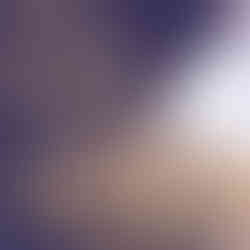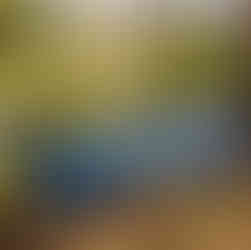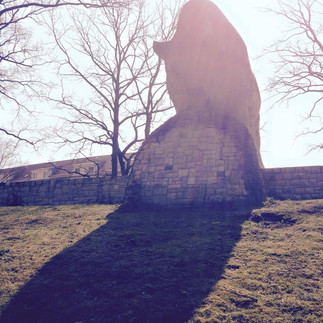A Message Of Hope From Hel’s Pond
- Anthon St. Maarten

- Apr 18, 2015
- 7 min read
Updated: Jul 29, 2025
Standing at the gateway to the Norse-Germanic underworld, Goddess Hel reminded me to live in the fullness of every day by stepping into its abundant miracles.

A yellow butterfly guided me to Blanke Helle, or “Hel’s Pond” during a recent visit to Berlin, Germany. It darted ahead of me all the way from the bus stop in AlboinStraße, until I reached the entrance to the park where lies forgotten, and hidden from public notice, the ancient pagan site sacred to Hela, or Hel, the Norse-Germanic goddess of death and the underworld. I have been guided by butterflies on a regular basis over the past two years, since the first one appeared to me at the Temple of Apollo in Delphi, Greece. I was much encouraged by the sudden presence of this golden, magical creature, because it predicted that my visit to this sacred pagan site would be less somber than I had imagined. Yellow butterflies represent rebirth, new life, transformation and resurrection in several cultures.
The Irish believe yellow butterflies to be an indicator of the peaceful transition of departed souls. And in Christian tradition yellow butterflies are symbolic of the Christ’s resurrection from death. They are also regarded as a sign of the presence of angels. Would Hel’s dark waters ultimately leave me with a message of hope?
Everyone who has ever built anywhere a new heaven first found the power thereto in his own hell. ~ Friedrich Nietzsche
Hel’s pond is located in the Templehof area of Berlin, which is so named due to its historical association with the Knights Templar. It is a small remnant of what used to be a vast lake surrounded by acres of forest. The murky pond is believed to be the entrance to the underworld and is rumored to have been a place of human sacrifice.
There is an unmarked statue of a gigantic bull overlooking this gateway to Helheim, which is a reference to the black bulls Hel used to send from the lake up to the surface. The bulls helped the pagan priest who tended her altar – to toil the land and feed himself. One day the old pagan priest had to retire and he found a Christian monk to take his place.
But the Christians soon discontinued the worship of Hel, and she was so angered that she sent one of her black bulls to destroy the monk who refused to maintain her altar. From that day it is said Hel lures her own sacrificial victims to the murky waters of her pond… to claim their lives. She is pretty much known to be a “take charge and do-it-yourself” kind of goddess!
The waters of the pond did seem dark, cold and menacing on the day of my visit in mid-April, but I was soon reminded of its power to regenerate and give birth to new life. All around the pond I found the early signs of spring bursting forth in the blues and yellows of the season’s first wild flowers. It was my intention to visit Hel’s Pond on a previous trip to Europe, but my schedule made it impossible.
Standing now at the gateway to the Nordic Netherworld, I understood why Hela chose for me to pay my respects at this time, and not sooner. My previous visit to Berlin was during the height of the summer season. That time of the year would not have conveyed her mythical significance as profoundly as these frosty first days of springtime.
The air on the day of my pilgrimage was crisp and icy with a sense of last minute winter despair, and the stark trees remained leafless and gloomy from their frozen sleep, but all around my feet little blooms, butterflies and bees whispered messages of hope, new life, rebirth and resurrection.
I told him I believed in hell, and that certain people, like me, had to live in hell before they died, to make up for missing out on it after death, since they didn’t believe in life after death, and what each person believed happened to him when he died ~ Sylvia Plath
Personally, my favorite aspect of the goddess Hela is the fact that she is supportive of the art of mediumship. The visit to her pond reaffirmed for me the value of my work as psychic medium, as well as my principles and personal beliefs about spiritualism and its practice. Raven Kaldera writes on the Online Shrine of Hel, “Since then, she has dutifully tended to her Dead, about whom she feels fiercely protective.
She looks down on necromancy and other forms of magic used to “bother the Dead”, although she will allow seidhr-workers (Old Norse term for a type of Nordic sorcery) and others who respect her boundaries to enter a special area close to Hel’s Gate, and speak with what Dead wish to come to them.” At first glance Goddess Hel seems evil and menacing, but her symbolism speaks profoundly of the human condition of impermanence and ephemerality, and her true character reveals deep transpersonal compassion. She is a favorite with artists and traditionally her physical appearance is depicted as blue-grey corpse, or skeleton, on one side of her body, and sensual, beautiful woman on the other… vertically split down the middle.
Hela reminds us of the eternal cycles of life, and that death is omnipresent, yet transient. It is not something evil or fearful, but a natural part of our spiritual journey. For this reason she embodies at once both living beauty and rotting flesh.
It seems profoundly appropriate that Hel’s sacred pond is located in the heart of Berlin, because to me she epitomizes the essence of Berlin: the intense dualistic nature of this world city and its dark and enchanting history… right down to its former division by a brick wall. She embodies both Eros (life, love, sexuality) and Thanatos (death, violence, destruction). One of my German friends told me Berlin’s former mayor, Klaus Wowereit, once said, “Berlin ist arm, aber sexy!” Berlin is poor, but sexy. Indeed, she is, just like the Goddess Hela.
Do not fear suffering, She told me, for My blessing to you is courage which bursts forth in its thousand-petaled loveliness from the raw stink of loss and betrayal. Do not fear Me, She said, holding the tip of Her sword at my breast, for it is better to rush upon this blade now than to shrink away from life, in fear. ~ Elizabeth Vongvisith
Hela teaches us the spiritual principle of duality: life and death, light and darkness. She raises our awareness of the laws of polarity and contrast. There is not only happiness and joy in our human existence, but also pain, loss and suffering. These are all sacred states of beingness. Contrast is after all what gives life it’s deeper meaning and reveals its true wonders.
In most spiritual traditions there is a myth about descending into the underworld. These myths exist in various cultures and religions all over the world, and they are a universal archetype of leaving the old behind and transcending into the new. Hela invites us to descend fearlessly into her kingdom of the night.
The Dark Night of the Soul is a powerful pathway to rebirth and enlightenment. She commands us to not settle for bitterness, self-pity or resentment during times of trial and tribulation. Embrace instead the Divine miracle of your path to greater awareness and understanding. Acknowledge your growing empathy for others and validate and cherish those people who stand by you, for better or worse.
There is always much light at the end of every tunnel of life, and someday soon you too shall find that silver lining. Without the contrast created by loss, disappointment or suffering, it is unlikely that we will ever truly treasure the real blessings in our lives.
Hail to Hel, queen of Helheim; Lady who takes away, yet holds always promise, teach us to praise loss and death and the passing of all things. For from this flux we know your blessings flow. ~ Raven Kaldera
Goddess Hel also reminds us that nothing lasts forever, that life as we know it is fleeting and impermanent. And although there is life beyond this life, we must live in the fullness of today and its abundant miracles. Hela is known as a no-nonsense deity who has little patience with cowards who waste away their empty lives procrastinating, whining and complaining. Life is after all for the living! It is our duty to make the most of it, instead of merely waiting for the end to come. There is absolutely no worse death curse than the humdrum daily existence of the living dead.
Hel’s Pond is not located on the mainstream tourist routes. You will find it at Alboinplatz park on the corner of Kaiserin-Augusta Straße and AlboinStraße in Tempelhof-Schöneberg. If you plan to visit Hel’s Pond, please be aware that to the locals this place is nothing more than just another public park and most may be unaware of the true metaphysical significance of this place. There are no signs or placque to identify it as a historical, much less a sacred site. If you did not know about it you would walk by it completely ignorant of its mythical legacy.
The Bull of Hel by Paul Mersmann is more commonly known as the “largest ox of Berlin”. The enormous sculpture constructed with Rüdersdorfer limestone is nine meters long and seven meters in height. It was erected in the early 1930s by unemployed Berlin sculptors according to Mersmann’s design. Legend has it that a secret cartridge was placed inside the sculpture containing an appeal against Hitler signed by the builders. © 2015 Anthon St. Maarten
ABOUT THE AUTHOR
Anthon St. Maarten is a psychic medium and destiny coach with a global clientele of thought leaders, business executives, celebrities, politicians, academics, and luminaries in the arts and sciences in more than thirty countries spanning five continents.
He is also a metaphysics teacher, psychic development coach, podcaster, and spiritual blogger. Anthon is a hereditary psychic medium in professional practice since 2004 and a liberal arts post-graduate with a major in psychology.
Anthon publishes the spiritual life design blog, The S Word, and is the author of Divine Living: The Essential Guide To Your True Destiny and The Sensible Psychic: A Leading-Edge Guide To True Psychic Perception.




























